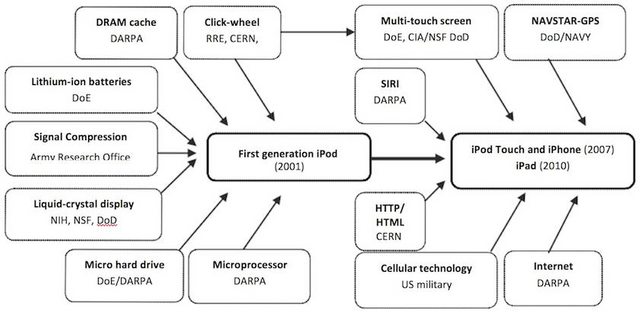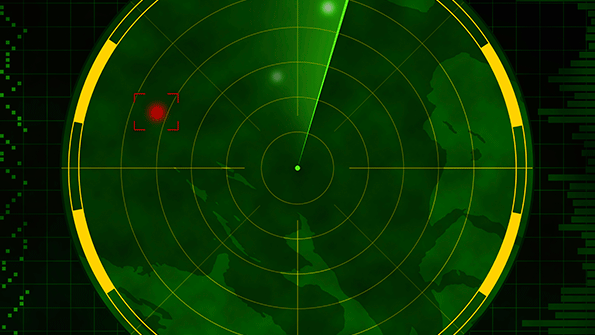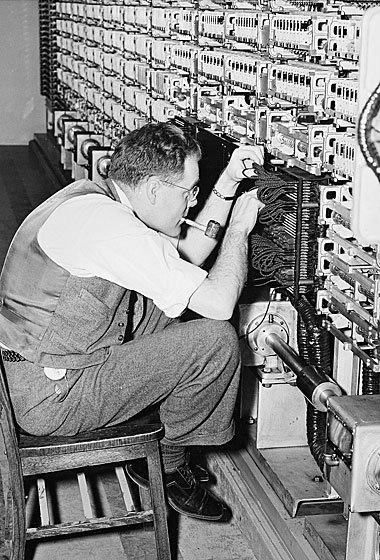Does War Drive Innovation?
The only way to test this hypothesis objectively would be to divide humanity into 3 different planets. One planet would be in a constant state of warmongering, another would be full of hippies and another planet would be much like us. That would be our control group. For those not familiar with the term, a control group in an experiment or study does not receive treatment/intervention by the researchers so it can be used as a benchmark to measure how the other tested subjects do.
Since we are not able to perform such an experiment we will have to resort to speculation and rather extrapolate our conclusions based on some pivotal parts of humanity's development. For example, all great empires that ever existed had powerful militaristic dominion over their neighbors. Most of the developments in those civilisations occurred in times of war as a result of competition. Later on at times of peace those innovations were utilised in different ways. More or less, for the last 7500 years (aka the time upon which human civilisation has existed) war has been paving the way humanity moves forward.
Ancient Egypt ruled for 4000 years. It was through their ruthless medical experimentations on slaves that medicine got to be advanced and later on carried out by the Greeks. Architectural marvels like the pyramids, were enabled by the amassing of slaves as spoils of war. Through the manpower architects developed new concepts that wouldn't be possible otherwise.
The Roman Empire that lasted for 500 years developed our war necessity newspapers for getting the armies informed. Roads to have access to all possible venues and thus enabling control. Welfare, for supplying the conquered and those least ftunate in the Empire. In medicine, they have pioneered in innovations such as the cesarean section and field doctors, that performed surgeries in the battlefield. Due to their excellent written record, those techniques were followed much later during the Renaissance and the Enlightenment.
Recent examples would be aviation since it flourished between the 1930s and 1990s, a time where the world superpowers were competing to control the skies. Competition allowed funding for projects which otherwise would not have received a green light. Space exploration followed a very similar path. The cold war and the consequent space race enabled innovations like the satellite to take place after insane amounts of money poured into the military. Likewise, nuclear energy might not have been possible without the atrocities of the atomic age. Consider that famous people like Richard Feynman and Albert Einstein were on board with the nuclear bomb (even if they later regretted it). Undeniably much of the technology that exists today disposal is direct side effect of wartime innovation.
Other pieces of technology like radios, submarines and semiconductors were pivotal in human progress and they were all results in times of war as a way to have an edge over the enemy. Without transistors and semiconductors we wouldn't have developed computers. Alan Turing, the father of cryptography and for many computing was pushed immensely to find solutions decrypting military devices and this is how the allies ended up winning the war. Without the military the advancement towards this spectrum would be hindered and probably get slowed down.
To envision how unlikely the internet progress has been, Paul Robin Krugman, a distinguished keynesian economist who was awarded the Nobel price said: "By 2005 or so, it will become clear that the Internet's impact on the economy has been no greater than the fax machine's". This is to show that even after so many advancements in this technology very few people could envision the present we have today. Imagine how hard this was back in 1930's when computers were the size of a small living room. The first pivotal step only happened because of military advancement.
War challenges our species towards innovation because it creates new necessities. New problems emerge due to direct competition and new solutions are urged to be found asap because they are matter of survival. One is much more efficient in seeking food when hungry rather than when they are spoiled and well nourished.
 The U.S Military is almost entirely responsible for the technology inside your iphone
The U.S Military is almost entirely responsible for the technology inside your iphone
The entire argument about war and innovation stems from another paradigm that all species go through. If the environment is challenging then the organism will adapt by changing its behaviour and qualities. If the environment is passive and unchanging the there is no need for radical evolutionary adaptations.
War is nothing more but an expression of conflict between two parties. It is a form of competition where the strongest prevails. We have similar competitions today in regards to many parts of our lives. Instead of spilling blood we rather define our victories with reputation and awards.
Many technological innovations happened in time of peace and then used in times of war.Surely, not all innovations are a result of war. Nonetheless, the world would be a totally different place if we were a peaceful species. Much of what we see today, much of what defines our life and current state of revolutionary development would not have existed for centuries if major wars did not take place.




Just musing:
If only all that creativity and those budgets could be used to solve other problems.
Even with no war going on, and no acute necessity of creativity for defence, we appear to be afraid enough all the time (or manipulated into thinking military expenditure is important) to spend many moneys on development of weaponry, and somehow we are at our most creative when that development involves killing other people.
If you can kick-start an economy by, for instance, killing many Germans, why can't you kick-start an economy by solving some famine problems here and there? Why does all that creativity go into (para-)military development even when there is no acute need for it, ie. no current circumstances dictate it?
I believe is because of prevailing over one another. Social darwinism. In much the same way we prefer our children over others.
@kyriacos reply I believe is the root of the answer to your question. However, another big factor is that war time is when DAPRA and other government agencies/budgets grow exponentially. Being a mechanical engineer myself, I know that creativity and invention hinges on one factor - money, support, and budget. War time budgets are way larger than peace time budgets (and for good reason if you ask me).
So yes, again, we are back to the love of money issue.
This is a very interesting theory and as you say hard to really test or prove although the anecdotal evidence seems quite powerful. Even if we did assume a real basis to this idea I think any kind of challenging situation could provide a similar spur. For example if our civilisation decided to commit itself to colonise space because we believed there was an imminent threat of the earth being destroyed (within a time frame which made it feasible) I'm sure we would get similar rates of advancement. It is a case of necessity pushing people to strive harder I think.
Yeap. This is why I Neil Tyson said that a potential space race with China (much like with Russian during the cold war) will put us on Mars on no time.
The point though is the cost. There is definately a tipping point in war though where everything can result in total extinction.
I think that is why war is such a big driver - if you are worried you could be wiped out cost goes out of the window!
There is a book I read a long time ago it is a kind of spoof in the form of a fake government document called The Report from Iron Mountain and puts forth the case for how the US would cope with a lasting period of peace!
It covers some of these issues. A lot of people believed it to be real but I think it is satire although it is written in the very dry style of a real government document.
"One planet would be in a constant state of warmongering, another would be full of hippies and another planet would be much like us."
The third describes the first. The first will create the contrary. The contrary the first. The contrary is the 2nd.
But you have to factor in the unseen opportunity costs. What about all the capital that has of been lost due to war? The burning of the Library in Alexandria might have set human civilization back hundreds of years. There is nothing inherent in force creating innovation or being unique only to it.
Wel; the Burning of Alexandria was rather a result of religious christian fanatics. Surely there is nothing inherently in force that creates innovation but there is definitely in competition. War is competition on steroids.
Innovation in cooperation is very doable; this is why many innovations stem from government-funded research, not just military. And there's Linux.
War is competition by other means, no argument there, but war also leads to a whole nation cooperating in the war effort, with different companies normally at each other's throats now cooperating in full to churn out what the war machine needs.
Maybe there is another side to this, namely that war leads to full cooperation within a nation to innovate, and the normal, non-wartime, competitive goings-on within a nation are actually a break on innovation.
Most definitely.
A bit of a shame, then, that we need wars to achieve these levels of cooperation. I sometimes wonder what we could achieve in global cooperation in stead of competition.
Anyhoo, I am not entirely convinced that competition is the best possible driver of innovation. Natural curiosity and cooperation could also go a long way. I know I design stuff for the fun of it, sometimes with friends.
Is it just fear and greed stopping us from having a go at it?
Right. Back to surpressing my idealism. Time for a beer.
This. Competition.
War is an arcane means to an end. It's impact on innovation is unsustainable and has now taken us to the point that we can guarantee MAD- Mutually Assured Destruction. Humanity will have to evolve to higher state of functioning if we are to survive as a species.
I was having a discussion with my uncle, I was describing the potential that Blockcian can have on humanity and my vision of a world where, with a new world economic model, technical innovation, and efficiency, everyone on the planet could be provided for.
He responded that "until the root of all evil i.e. "competition", is eliminated we will always be in a state of war. Not until we evolve into a state that we are all functioning primarily from a position of love can war and competition be eliminated."
I believe this statement to be true, and I am seeing the evolution happen before my eyes. My son, his friend's and younger generations are being raised with more love and are learning to be more tolerant and empathetic toward others. Our future generations will evolve to this higher state of functioning and will create a world free of war and with the help of AI increased innovation.
War is competition at an infantile level, so I guess it's similar to people who take steroids versus those who develop their body naturally. It takes sophistication and humanity to compete peacefully.
I like to think the lazyness drives all the innovation. Im lazy as fuck :D
this is true as well
I like to think that governments hinder progress and innovations through regulations. Governments are the #1 perpetrator of wars. A free (and peaceful) market would bring on a world of new advancements.
I would like to exchange US funds given for military and NASA...
So would you think this is a good thing? I believe if the money that has been spent on military budgets over thousands of years had been spent on research without the military intermediary, we would be way better off than we are now.
This is just perfect!
during war, people unleash the full potential of the tech. Probably from there, the tech starts to move into the market during peace time.
War is just pure destruction and waste of resources.
vice versa can work as well.
Unfortunately yes...